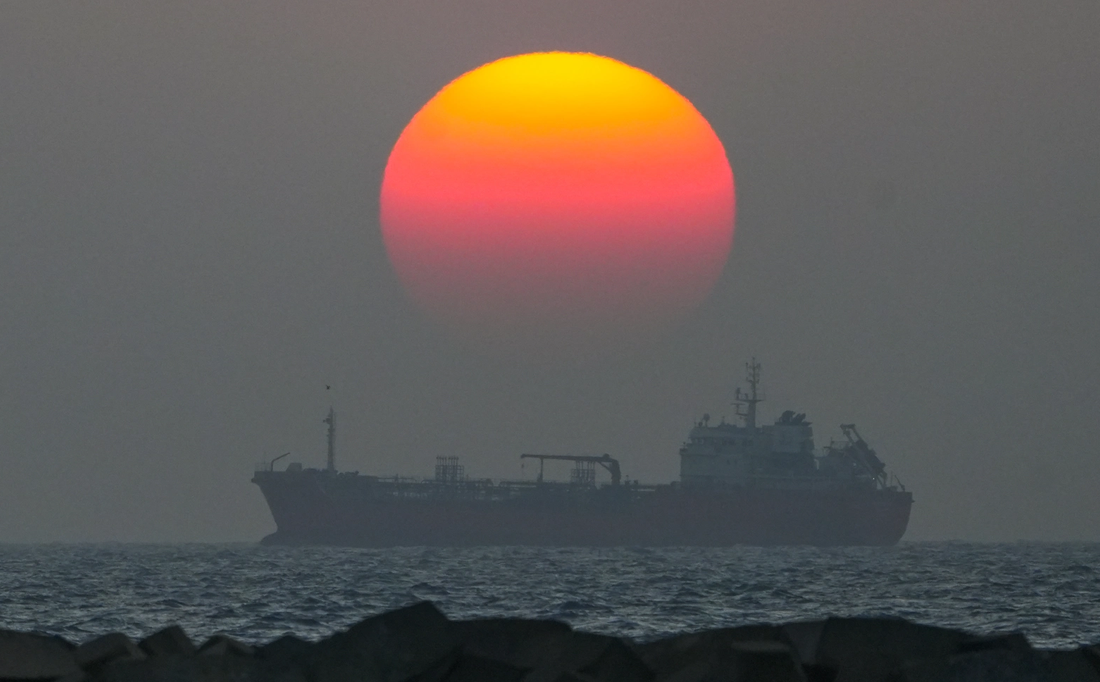This cross-border investigation reveals an intricate network of diesel smuggling in the Mediterranean, potentially involving Russian fuel and facilitated by an elusive “dark fleet” of vessels seeking to skirt sanctions.
The story begins with the seizure of the Aristo, a Cameroonian-flagged tanker, by Italian authorities off the coast of Sicily in November 2023. The Aristo was caught transferring diesel to the Normand Maximus, a ship contracted by Italian energy company Saipem.
The investigation uncovered that the Aristo had a pattern of suspicious movements, including turning off its Automatic Identification System (AIS) for extended periods in known smuggling hotspots like Hurd’s Bank near Malta and an area off the coast of Libya between Benghazi and Tobruk.
Analysis of shipping data identified more than 40 tankers with similar characteristics and activities as the Aristo. These vessels, often older than 15 years and owned by shell companies in tax havens, constitute what analysts call the “dark fleet”.
New “dark fleet” smuggling diesel in the Mediterranean
A tanker was arrested off the coast of Sicily while transferring hundreds of thousands of litres of diesel of possible Russian origin.
A story by @Greennman @SimoneOlivelli & @IrpiMediahttps://t.co/TlRFGzw2nC— TheBlackSea (@TheBlackSeaEU) October 2, 2024
This fleet is known for transporting sanctioned oil products, potentially from Russia, by exploiting flags of convenience and lax oversight.
The investigation suggests that these tankers engage in a relay system to obscure the origin of the smuggled diesel. Ships coming from the east, potentially carrying Russian oil, meet ships like the Aristo coming from the west in the waters north of Benghazi.
They then transfer the fuel in international waters with their AIS systems deactivated, making detection and intervention by authorities extremely difficult.
Libya’s role as a potential hub for this illicit trade is significant. Russia is a major supplier of fuel to Libya, and the Libyan Court of Auditors estimates that 40 percent of the country’s fuel imports are illegally re-exported.
This points to a system where Russian diesel could be entering Libya and then smuggled into Europe, potentially with the involvement of powerful actors like the Haftar family, who exert control over eastern Libya.
The investigation highlights the economic incentives driving this illicit trade. Smugglers profit by exploiting the price difference between sanctioned Russian diesel and market prices in Europe. This allows Russia to circumvent sanctions while European companies benefit from cheaper fuel, perpetuating the cycle.
The investigation into the Aristo is ongoing. The origin of the diesel is yet to be definitively proven, and the potential involvement of larger companies like Saipem is under scrutiny.
The lack of transparency surrounding the Aristo‘s ownership further complicates the investigation. This case exposes the challenges authorities face in combating diesel smuggling and enforcing sanctions due to opaque ownership structures, flags of convenience and the exploitation of international waters.
The stories below are part of an ongoing joint investigation by journalists from IrpiMedia (Italy), The Black Sea (Southeast Europe) and La Marea (Spain).
See the stories published so far and stay tuned for more.
